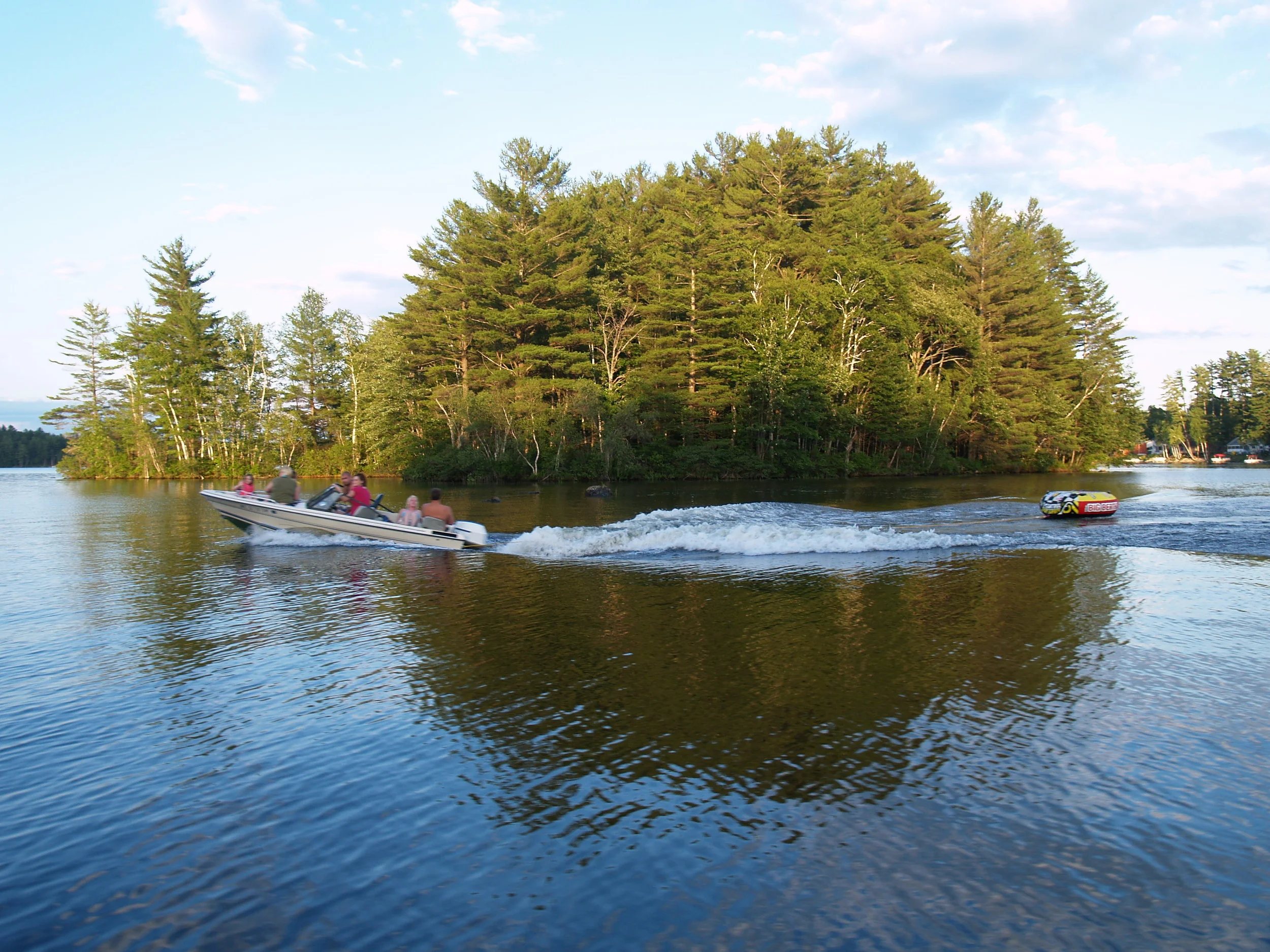Prudent watercraft operation creates a safe environment for all the people on the lake. The operator of a watercraft must consider the affects of the wash or wave created by their craft. Imprudent boat operation effects shoreline erosion, water front piers, floats and other property; as well as the birds and animals nesting along the shoreline. Be a good neighbor; obey the boating laws and regulations.
Speed Regulations
“Water Safety Zone” or “No Wake Zone”, a watercraft may not be operated at a speed greater than “Headway Speed” within 200 feet of the shoreline of a mainland or island. “Headway Speed” is defined as the minimum speed necessary to maintain steerage and control of the watercraft while the craft is moving. There is an exception to this “No Wake Zone” in that a watercraft may enter this zone to pick up or drop off a water skier. However, in doing so, it is the responsibility of the operator not to endanger any person or property. I will never forget being anchored and fishing with my two young boys when a ski boat came directly at me with everyone looking at the skier to the rear. We were only saved by the skier falling before the boat reached us.
Boating and Alcohol
Any person who operates or attempts to operate any watercraft while under the influence of intoxicating liquor or drugs or both could be found guilty of criminal violation. A Law Enforcement Officer, who has probable cause to believe a person may be operating while intoxicated, will ask that person to submit to a blood-alcohol test. A level of 0.08% or more by weight of alcohol in that person’s blood is considered a criminal violation, just as in driving an automobile.
Imprudent or Reckless Operation of a Watercraft
A person is guilty of “Imprudent Operation” of a watercraft if the person, while operating a watercraft engages in prolong circling, informal racing, wake jumping or other types of continued and repeated activities that harass another person. “Reckless Operation” means that it is illegal to operate a watercraft in such a way as to recklessly create a substantial risk of serious bodily harm.
Harassing of Birds or Animals
It is illegal to operate a watercraft in such a way as to harass wild birds or animals so as to pursue, molest, drive or head any wild birds or wild animals. We have all heard we are not to molest the loons. That applies to all wild animals and birds. In this context, molest means to interfere in any way so that the animal or bird appears to be frightened or distressed.
Personal Flotation Device (PFD)
Before getting underway it is the responsibility of the operator of the watercraft to verify that there are approved PFD’s for each occupant of the watercraft. They must also be age and size correct for the passengers on the craft. It is mandatory that each child 10 years of age and under must wear an approved PFD while on board the watercraft. Also, anyone operating a personal watercraft (jet ski, etc.) or being towed on water skis, tubes or other similar devices must be wearing an approved PFD device. Note: boat cushions are not approved PFD devices. Should a Warden stop you, the passengers may be asked if they know where the PFD’s are on the watercraft. You may also be asked to display a horn, fire extinguisher, throwable devise and paddle.
Ages for Operation
When operating a motor craft of more than 10 horsepower, a person under the age of 12 must be under the immediate supervision of a person in the boat of at least 16 years old. Anyone under the age of 16 may not operate a personal watercraft (jet ski or similar) and anyone between 16 and 18 must demonstrate they have completed an approved education course or are accompanied by one over 18 years. Any watercraft towing one on water skis or similar device must have a person in the watercraft of at least 12 years of age in addition to the operator to continually observe the person being towed.
Link to Boater's Guide to Maine Boating Laws and Responsiblities
